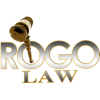
Understanding Drug Laws in Florida: A Comprehensive Guide
Introduction to Florida’s Drug Laws
Navigating the complex landscape of drug laws in Florida requires a comprehensive understanding of the regulations in place. This guide aims to provide an insightful overview of the state’s drug laws, including the classification of substances, the penalties for drug offenses, and potential defense strategies. With this knowledge, individuals facing drug charges in Florida can better prepare to confront the legal challenges ahead.
Florida’s Drug Schedules and Classification System
In Florida, controlled substances are classified into five distinct schedules under Florida Statute § 893.03. This classification is based on the substance’s potential for abuse and its accepted medical use:
- Schedule I: Includes substances with a high potential for abuse and no accepted medical use, such as heroin, LSD, and marijuana.
- Schedule II: Encompasses substances with a high potential for abuse but with some restricted medical uses, like cocaine, methamphetamine, and oxycodone.
- Schedule III: Contains substances with a lower potential for abuse and accepted medical uses, such as anabolic steroids and ketamine.
- Schedule IV: Comprises substances with a low potential for abuse and accepted medical uses, like diazepam and alprazolam.
- Schedule V: Includes substances with the lowest potential for abuse and accepted medical uses, such as certain cough suppressants.
Drug Offenses and Penalties in Florida
The range of drug offenses in Florida is extensive, covering possession, sale, delivery, and manufacturing. The penalties vary based on the drug’s schedule and the amount involved:
- Possession of Controlled Substances: Illegal possession of any controlled substance without a valid prescription is addressed under Florida Statute § 893.13, with penalties ranging from misdemeanors to felonies, depending on the substance and quantity.
- Sale, Delivery, and Manufacturing: These offenses carry severe penalties, with the potential for lengthy prison sentences and substantial fines, especially for Schedule I and II substances.
Defenses for Drug Charges in Florida
A robust defense is crucial when facing drug charges in Florida. Potential defenses include:
- Unlawful Search and Seizure: Challenging the legality of the evidence obtained through unreasonable searches or seizures.
- Lack of Knowledge or Intent: Arguing the absence of awareness or intention to possess, sell, or manufacture the controlled substance.
- Valid Prescription or Medical Necessity: Demonstrating legal entitlement to possess the substance for medical reasons.
- Entrapment: Claiming inducement by law enforcement to commit a crime not otherwise contemplated.
Conclusion: Navigating Florida’s Drug Laws
Understanding and navigating Florida’s drug laws is vital for anyone facing drug-related charges. Being well-informed about the classification system, potential penalties, and available defenses enables individuals to make educated decisions regarding their cases. Collaborating with an experienced criminal defense attorney is paramount to safeguarding rights and pursuing the most favorable legal outcome.
